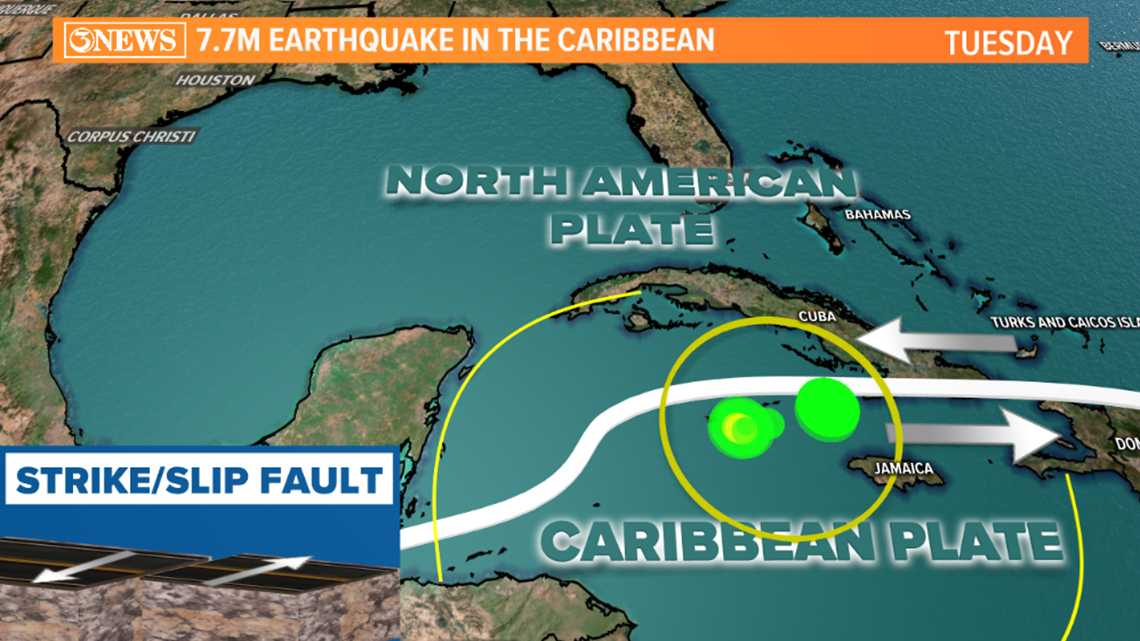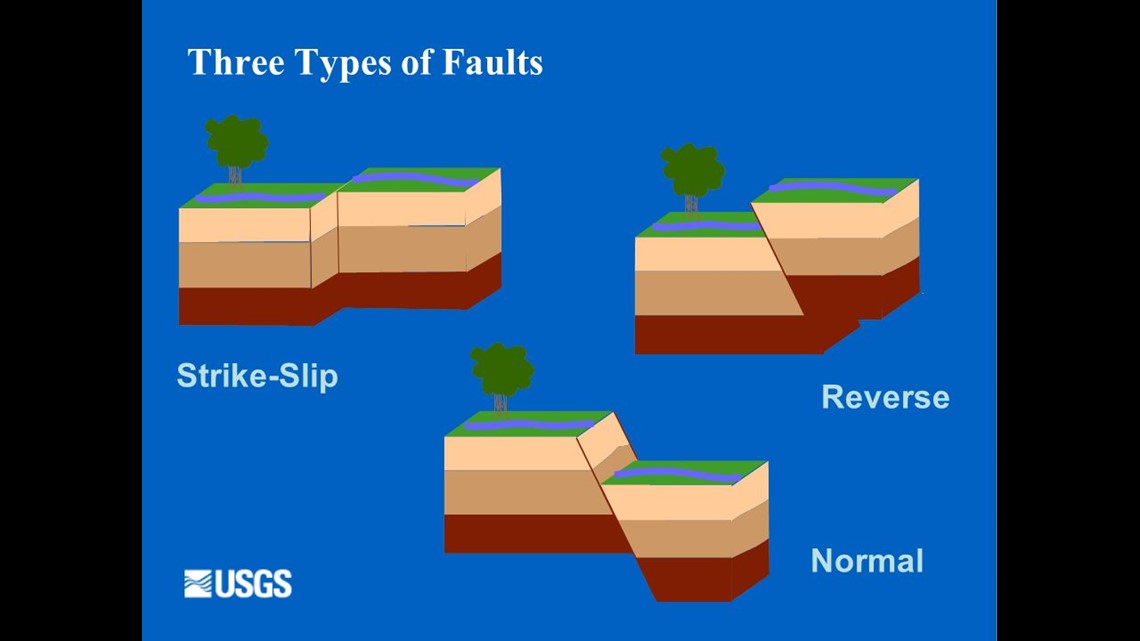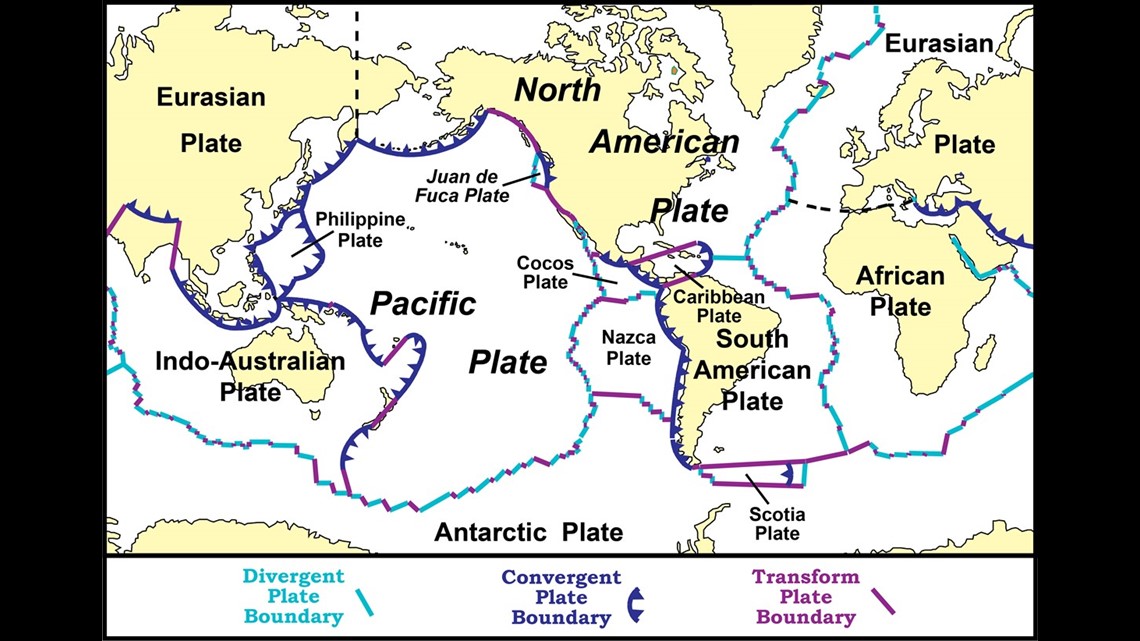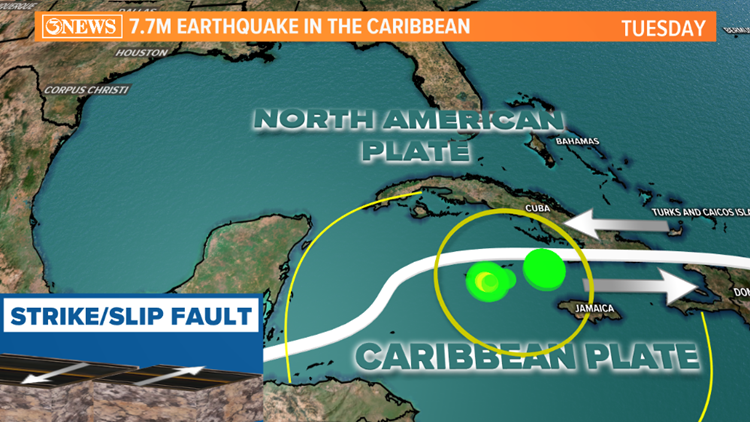CORPUS CHRISTI, Texas — Couldn't resist the pun in the title because this article is about tectonic plates...and faults. We'll be talking about earthquake induced tsunamis and that threat (or lack there of) in Texas.
A 7.7 magnitude earthquake rattled the Grand Cayman Islands and Cuba Tuesday, Jan. 28. The shake could be felt as far away as Miami, FL, where buildings were reportedly swaying and some high rises were evacuated. Living on the TX coast begs the question, is Texas susceptible to tsunamis after earthquakes? In short, not really. Thanks for reading.
But here's why...


• Reason 1
- Texas sits on the Northern American Plate, which extends into the Caribbean, where it is in contact with the Caribbean Plate. These two tectonic plates are scraping against one another and can lead to earthquakes. Because the two plates move horizontally and not against each other, this tectonic plate boundary is a strike slip fault. This boundary can produce violent earthquakes, but don't necessarily dislodge large quantities of water because they're moving side to side instead of up and down. If this fault were in the Gulf of Mexico instead of the Caribbean, it would be a much different story, but it's not and Texans are ok with that.


You need plates pressing against each other, creating enormous pressure over time A quick release of that pressure creates large water displacement (tsunamis). Faults that can cause this are called normal or reverse faults (sometimes called thrust). A common area for this is in the Western Pacific. Think back to the tsunami in Japan in 2011 that was created by a 9M earthquake. When one tectonic plate is forced up (or down) and the fault is over water, the entire column of water above the tectonic plate movement is dislodged, creating a tsunami. When this is happening over land...hello mountains.


• Reason 2
- Because the Gulf of Mexico sits on a single tectonic plate, there aren't faults generating earthquakes (at least not big ones) in the gulf. Earthquakes happening along the North American/Caribbean Plate do shake the water, but because of the small entry points into the gulf (Yucatan Channel and Straits of Florida), a tsunami wouldn't be able to keep its energy past the entry points to the Gulf of Mexico. That keeps the Texas Gulf Coast safe from earthquake generated tsunamis.
Tsunamis can also by way of landslide, volcanic activity, and meteor strikes. Basically, any force capable of dislodging large quantities of water. If a meteor of the likes of the one that made dinosaurs go night-night were to impact the gulf, yes, a tsunami would hit the Texas Gulf Coast. But that would be the least of our problems.
- Holt, out



